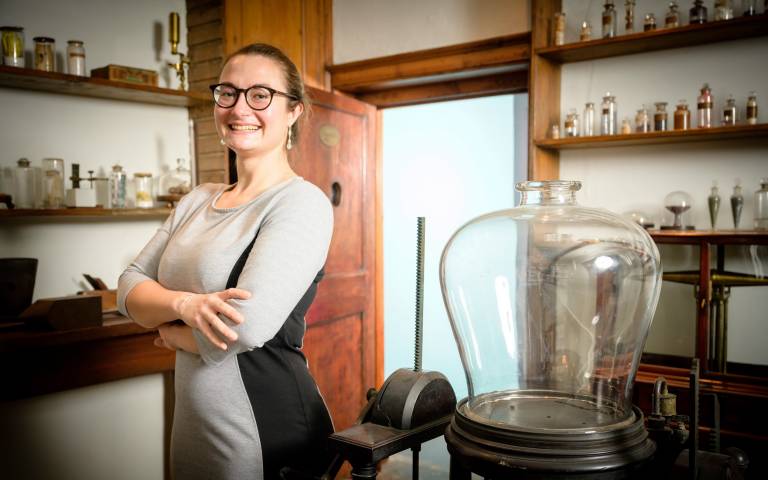Three history of science PhD researchers, including Aleksandra Kaye (UCL History), have been named as the first to be awarded a Freer Prize Fellowship at the Royal Institution.

Aleksandra, Katy Duncan from the University of Cambridge, and Viswanathan Venkataraman from King's College London were chosen for the award from 'an incredibly strong field' of international applications.
It is the first time that Philip Freer Studentship Trust funding for PhD students has been awarded through a competitive process, to bring the very best research projects to fruition. Each Fellow will now complete the final year of their PhD research with support from the Royal Institution (Ri) and funding from the Philip Freer Studentship Trust.
Aleksandra Kaye is mapping the Polish knowledge networks in nineteenth century Latin America, to understand the role migration has played in the production, transfer and acceptance of scientific knowledge.
Her work is designed to investigate the proposition that marginalised communities are scientifically innovative, and that migrants continue to play a vital role in expanding and sharing scientific knowledge today, in pursuit of solutions to major global challenges.
On receiving the fellowship, Aleksandra Kaye said: "I am delighted to have been awarded the Freer Prize Fellowship. The Royal Institution has a long and rich history of science communication and public engagement, and I am thrilled to make a contribution to this ongoing work."
The award of just three Fellowships follows a competitive application process open to leading PhD researchers from around the world. Each new Prize Fellow was required to demonstrate high academic merit combined with insights into present day challenges and a clear contribution to shaping equitable and sustainable futures. Applications were assessed by a panel of world-renowned leaders in the field of history of science.
Lucinda Hunt, Director of the Royal Institution, said: "We should never underestimate the power an understanding of our scientific past has, to transform people's lives today and in the future.
"The history of science research being undertaken by our Freer Prize Fellows - chosen through a process of open competition - has a vital role to play in furthering contemporary advances in scientific research."
Dr Sophie Forgan, a Trustee of the Philip Freer Studentship Trust, said: "We are delighted to have been able to award Ri Freer Prize Fellowships to three such outstanding students from an incredibly strong field, as they complete their PhD studies and, importantly, as they communicate their research findings to a public audience.
"The Philip Freer Studentship Trust was established to support postgraduate students in making a difference in the world and that begins by engaging the public with compelling, research-based conclusions."
The Ri Freer Prize Fellowships have a direct connection to the Ri's internationally significant collection of scientific apparatus, books and manuscripts, with each fellow linking their work to Ri heritage when communicating their research to the public.
The three Ri Freer Prize Fellows took up their positions at the Ri on 1 January 2022.






